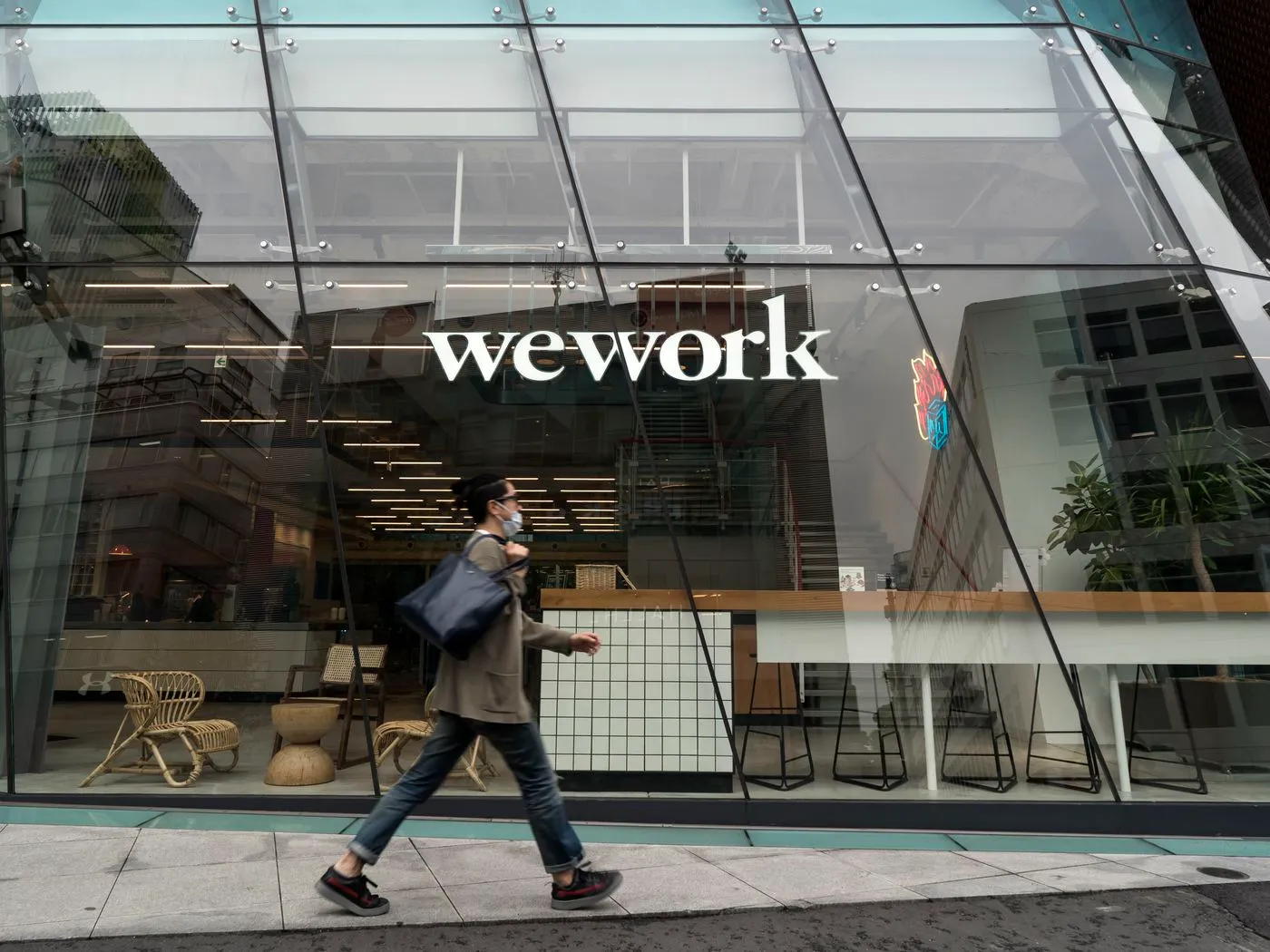Shares of Wework, Once Worth $47 Billion, Are Near Zero Following a Bankruptcy Warning
WeWork (WE.N) shares underwent a remarkable downturn on Wednesday, approaching near-zero valuation. This represents a stark reversal of fortune for a company that once enjoyed the status of a startup darling and was privately appraised at $47 billion.
Supported by SoftBank, the venture has faced persistent challenges since its initial attempt to go public in 2019 disintegrated. This failure stemmed from investor apprehension regarding its substantial losses, governance issues, and the leadership approach of then founder-CEO Adam Neumann.
The difficulties encountered by WeWork did not subside over subsequent years. It ultimately achieved a public listing in 2021, albeit at a significantly reduced valuation, yet profitability remained elusive. Despite Japanese conglomerate SoftBank injecting substantial funds to sustain the startup, the company continued to operate at a loss.
Steve Clayton, Head of Equity Funds at Hargreaves Lansdown, remarked, "WeWork was arguably one of the most excessively hyped startups in recent memory."
Since its introduction through a blank-check merger in October 2021, WeWork's shares have experienced an almost complete erosion of their value. On Wednesday, they traded at 13 cents, translating to a valuation of approximately $260 million. Notably, a series of departures ensued, including CEO Sandeep Mathrani in May and three board members this week.
The pursuit of a new CEO is currently underway, as announced by WeWork on Tuesday.
The fundamental premise of WeWork's business model revolves around securing extended leases and subsequently subletting spaces for shorter durations. Despite rapid expansion over the years, the onset of the global COVID-19 pandemic has diminished the appeal of shared office spaces.
Interim CEO David Tolley stated during an analyst call on Wednesday, "Fewer companies, spanning mature large-cap entities to startups, are now inclined to commit to lengthy leases for fixed geographical spaces."
These ongoing predicaments represent a setback for SoftBank, which channeled substantial financial resources into WeWork during recent years. Masayoshi Son, the head of SoftBank, had personally endorsed Neumann and stepped in with a $10 billion bailout in 2019 following the failed IPO.
The subsequent aftermath of the WeWork investment incurred substantial losses for SoftBank. Son expressed subsequent regret over his support for the company, acknowledging that his "judgment was deficient in various aspects and I am deeply introspecting on that."
In March, WeWork reached an agreement to trim debt by approximately $1.5 billion and extend select maturity dates to conserve capital.
Although cost-cutting initiatives led to a reduced net loss of $349 million in the second quarter compared to $577 million a year earlier, WeWork still consumed $646 million in cash during the first half of the year. By the end of June, its available cash reserves amounted to $205 million.
BTIG analysts noted, "While flexible workspaces remain relevant within the office ecosystem, WeWork, in its current state, may face challenges." As a result, they downgraded the stock to a "neutral" rating.
WeWork has outlined its intent to bolster liquidity by reducing rent and tenancy expenses, controlling outlays, and curbing member attrition.
The bankruptcy alert issued by the company is stated to have no impact on its Indian division.

Subscribe to our newsletter!
As a leading independent research provider, TradeAlgo keeps you connected from anywhere.








